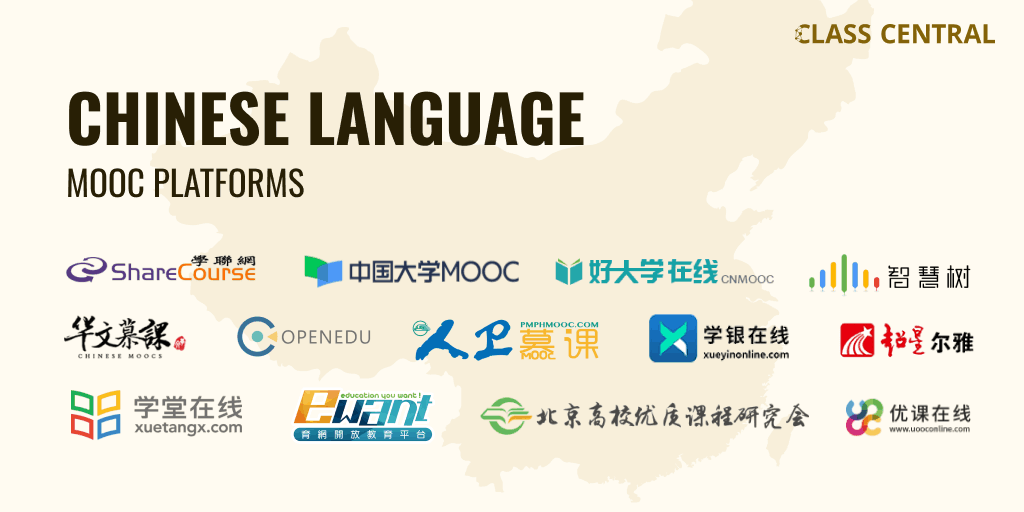School’s Out in China: Can MOOCs Fill the Gap Left by the Coronavirus?
The Ministry of Education (MOE) issued instructions to enable students to resume their studies remotely, providing 24,000 online courses from more than 20 online platforms free of charge.
The coronavirus outbreak meant China’s Ministry of Education had to postpone the start of the new semester, which typically begins on February 10th. But even though students can’t be in class, the Ministry is advocating the use of online education platforms to allow teaching and learning at home.
Postponing the start of school is no easy feat for the world’s most populous country. According to the Statistical Report of National Education Development, in 2018 China had 276 million students, including 189 million K12 students and 38.3 million college students.
The coronavirus has also impacted China’s significant for-profit education sector. Many companies that provide offline training are facing difficulties in recruiting students. IT XDL, a 13-year-old IT training company, redeclared bankruptcy on February 6th, 2020. Another company, Mingxi, which was founded in 2016 and focused on the Chinese language instruction for primary school students, closed on February 13th, 2020. And Squirrel AI has stopped its 2000+ offline camps since January 29, 2020 and transferred all education resources to online platforms.
An Explosion in Online Education

To deal with the challenges the coronavirus poses, China is turning to MOOCs and other forms of online education. On February 7, 2020, the Ministry of Education (MOE) issued instructions on the deployment of Higher Education Institution online teaching to enable students to resume their studies remotely, providing 24,000 online courses from more than 20 online platforms free of charge. Many universities in China, including Peking University and Tsinghua University have made clear instructions to prepare well for the online study starting on February 17, 2020. In the spring semester, 3923 courses at Tsinghua University and 4437 courses at Peking University will be taught online in forms of MOOCs, SPOCs, recorded courses, live streaming courses and video conferences.
The shift to online education has not gone unnoticed by the market. Class Central analysis shows that six of the top publicly traded online education companies have seen significant increases in their stock prices:
Top public online education companies have seen increases in stock prices.
| Company Name | Stock Symbol | Growth in 2019 | Growth in 2020 |
| TAL Education Group | NYSE: TAL | 80.7% | 19.5% |
| New Oriental Education & Technology Group | NYSE: EDU | 121.0% | 14.9% |
| Koolearn | HKEX: 1797 | 79.2% | 72.6% |
| Genshuixue | NYSE: GSX | 108.6% | 74.2% |
| Youdao | NYSE: DAO | 12.6% | 56.3% |
| 51Talk | NYSE: COE | 40.3% | 92.6% |
Opportunities and Challenges
Many online education companies have produced free tools, services, and online courses for K12 students and teachers, jiemodui.com reports. These companies include Tencent Classroom, DingTalk, Zuoyebang, Yuanfudao, Vipkid, and 17zuoye. Offering free services undoubtedly helps schools, but the companies also benefit from increased downloads and increased activity on their platforms.
DingTalk is one company that experienced explosive growth after creating a free app for schools affected by the coronavirus. DingTalk, one of Alibaba Group’s apps for communication, was originally designed for China’s white-collar workers and initiated its “DingTalk Future School” plan in March 2019. However, after passing the registration verification by MOE on December 16th 2019, DingTalk adapted to the virus outbreak by offering free service to help educate primary and middle school teenagers. It has ranked the highest free download apps in China since Feb 5th, 2020, and by the end of Feb 10, more than 12 million students from over 20K primary and secondary schools joined DingTalk’s homeschool program to have online classes.
However, DingTalk’s rating in the Apple store for Chinese mainland users once dropped to as low as 1.3 with many one-star ratings from students. DingTalk then responded with a funny self-made video published on Bilibili, begging school students to stop venting anger on the software, saying “Young heroes, I know you were not expecting such a fulfilling holiday, it’s difficult for you.” The video has received 7.9 million views.
Tags







